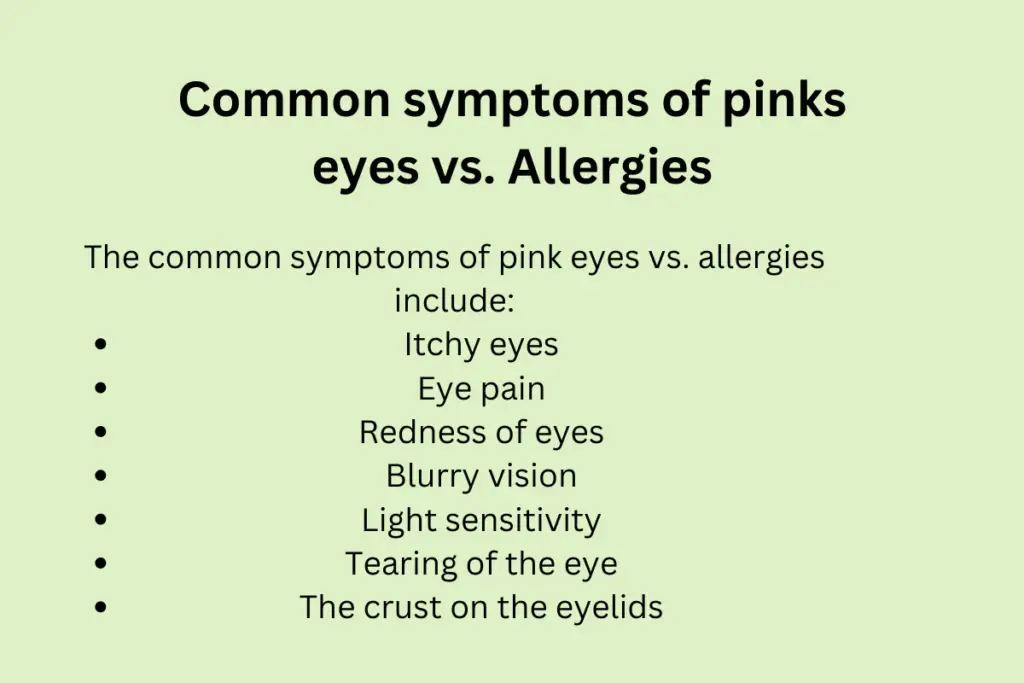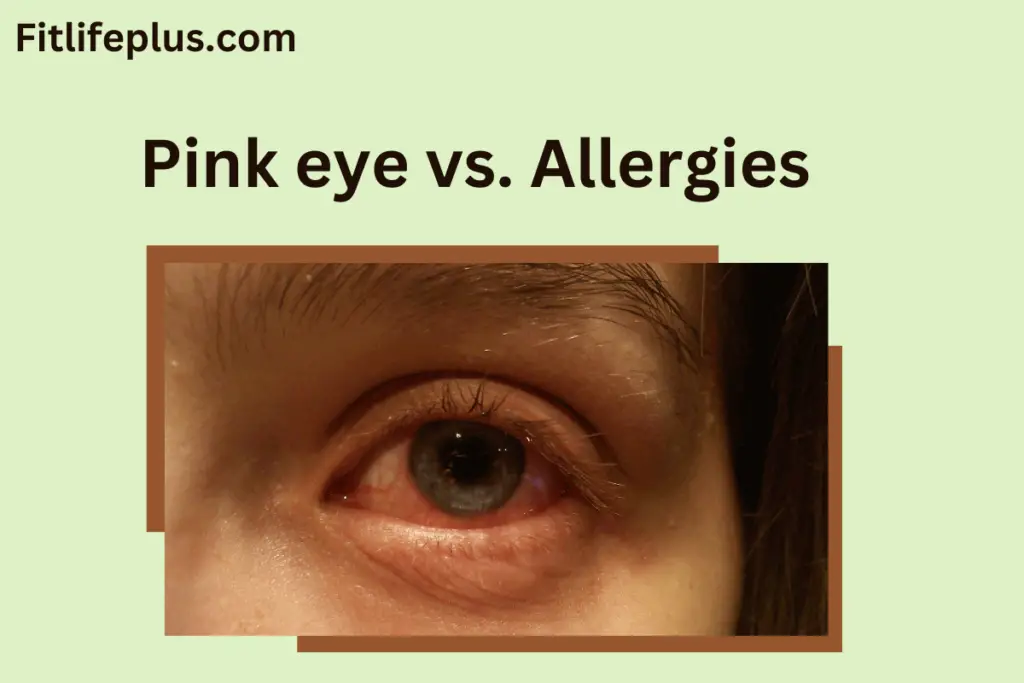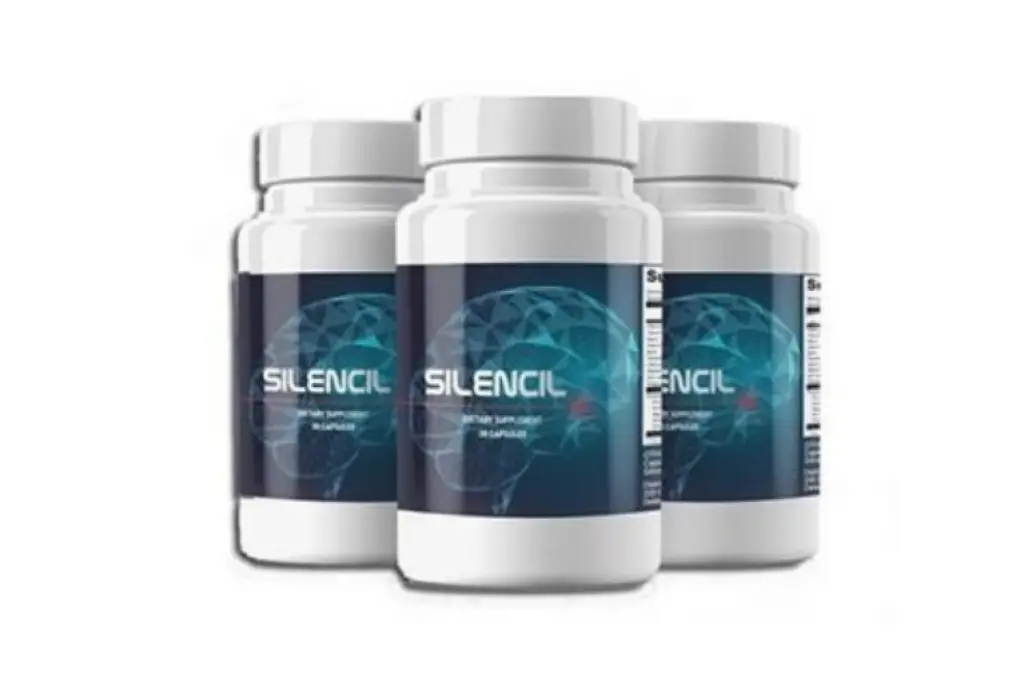Pink eyes or conjunctivitis can make your eyes red and uncomfortable and can irritate them. In contrast, allergies can also irritate your eyes and turn them red or pink. It is known as the allergic conjunctivitis as the allergic reaction triggers them.
If you think you have pink eyes but also experience allergic reactions, it can be challenging to tell what you are dealing with.
This article will discuss the main differences between allergies and pink eyes, including their causes, symptoms, and treatment.
What is pink eye?
Pink eye, or conjunctivitis, is a contagious disease that is caused by bacteria and viruses and is contagious, especially in places like the workplace, schools, or other crowded places. The virus behind the pink eye is the same virus that causes the common cold, runny nose, or sore throat symptoms.
While bacterial infections are caused by the same bacteria that causes strep throat and produce symptoms like a scratchy and sore throat, the symptoms of the virus conjunctivitis include soreness and redness of the eyes that make pus in the eyes, watery discharge, and an intense burning sensation.
In contrast to bacterial conjunctivitis, it causes soreness and redness of the eyes, which produces pus and makes the eyes sticky. The other pink eye type resulting from cigarette, smoke, pollens, animal dust, or other allergens is not contagious.
The discussion of pink eye vs. allergies can be complex. So let’s start with the root causes and common symptoms.
Common symptoms of pinks eyes vs. Allergies

The common symptoms of pink eye vs. allergies include:
- Itchy eyes
- Eye pain
- Redness of eyes
- Blurry vision
- Light sensitivity
- Tearing of the eye
- The crust on the eyelids
Besides, some of the symptoms of pink eyes are exclusive. According to the experts, there is a minimal difference between the symptoms of pink eyes and allergies, which makes it challenging to differentiate.
Allergic conjunctivitis can occur in both eyes and can give rise to intense irritation, swelling, itching, and tearing in the eyes. They can result from seasonal allergies and show symptoms of sore throat, asthma, sneezing, or nose itchiness.
How to differentiate between pink eyes and allergies?
While discussing pink eye vs. allergies, the ongoing season is essential to consider while considering the pink eyes vs. allergies. A polluted environment or seasonal changes are the main reason behind allergic conjunctivitis.
When you know about your food intolerance and allergies, your doctor can quickly diagnose the cause of your eye irritation. But if you are an outgoing person going to crowded places, there are maximum chances you have interacted with someone suffering from pink eye. In such cases, you may have the viral or bacterial form of pink eye.
Generally, allergies don’t have severe symptoms and go away alone. At the same time, the pink eye is contagious and can cause other symptoms if not treated. Pink eyes can affect the vision and can cause inflammation in the cornea. You will have light sensitivity, blurry vision, and a constant feeling that something is in your eye.
In such cases, you must visit your doctor for the proper diagnosis of your condition. A doctor will help you with the appropriate diagnosis and will make it more reliable for you to make the diagnosis.
Your doctor will diagnose after reviewing your history, symptoms, and a detailed eye examination. In some cases, the eye discharge samples are also sent to the laboratory to detect the exact cause of the pink eye.
Pink eye vs. Allergies
Pink eye or conjunctivitis is an infection or irritation of the conjunctiva. Many people confuse pink eye with allergic conjunctivitis because they have similar symptoms.
Similarities
The common symptoms of pink eyes and allergic conjunctivitis include:
- Watery discharge from the eyes
- Eye redness
- Gritty sensation
Differences
- The extreme level of itchiness is a symptom that is only associated with eye allergies.
- Viral conjunctivitis generally starts in one eye and spreads to the other, while allergies affect both eyes.
- Viral conjunctivitis is highly contagious, unlike the other allergic conjunctivitis.
With the help of an eye examination, your doctor can differentiate between both eye conditions.
Diagnosis
As the symptoms of pink eyes and allergies are similar, it is recommended to see a doctor or a specialist for the diagnosis. Your doctor will take a pus sample or have a deep eye examination for diagnosis.
For an accurate diagnosis, they will see your allergies or other health conditions to describe the proper eye treatment.
Treatment of pink eyes vs. Allergies
Home remedies can help in the prevention and treatment of both conditions, but both of them require different needs.
Pink eyes
Home Remedies
Some effective home remedies for pink eyes include:
- Over-the-counter lubricating eye drops
- Warm compresses
- Not wearing contact lenses or makeup till the infection clears
Medications
Some over-the-counter painkillers like ibuprofen can help with the discomfort from pink eye. Bacterial conjunctivitis generally goes away on its own in 2 to 5 days. But sometimes it can take up to 2 weeks.
If your doctor sees you have excessive eye discharge, have a specific type of bacteria, or are immunocompromised, he will prescribe certain medications. Antibiotics don’t work for viral cases. Viral pink eyes usually go away within one to two weeks. In some cases, it may take up to three weeks.
In case you have a severe issue or are infected with the bacteria like the herpes simplex virus, then your doctor can prescribe you specific viral medicines.
Allergies
The ideal thing to do in case of allergies is to prevent the allergens. However, we can’t always do it, so in such cases, there are certain medications and home remedies that will help.
Home remedies
The home remedies for allergic conjunctivitis are:
- OTC lubricating eye drops
- Cool compresses
Medications
In case of allergies, your doctor can prescribe you a combination of many medicines like eye drops and allergy medications. If you still have the symptoms, they recommend allergy shots, also known as immunotherapy.
Prevention
To prevent infectious and non-infectious conjunctivitis, here are a few helpful tips.
Pink eye
- Properly wash your hands
- While working with chemical use the, protective eye care
- Avoid sharing personal items like makeup brushes, facecloths, towels, and other things that can come in contact with your eyes.
- Don’t touch your eyes with your hands.
Allergies
The best way to prevent the allergic reaction is to avoid the triggers and allergens. However, it’s only sometimes a possible option. But with the help of the following tips, you can minimize exposure to allergens.
- If you have a pollen allergy, minimize your outdoor timing during the pollen times. Keep your windows closed and use central air conditioning with the filter attachment.
- Keep your pets outside your bedroom and probably in an area without carpets.
- Avoid insect bites by covering your skin with proper clothing.
- If you have a food allergy due to particular food, then check the ingredient list before having it.
- With the help of a dehumidifier, keep your room dry, as the high humidity indoors can encourage dust mites and mold growth.
FAQ’s
Can pink eyes start from allergies?
A viral infection, bacterial infection, or allergic reaction usually causes pink eye. In babies, it can also react from an uncompleted opened tear duct.
What is mistaken for pink eye?
Several eye conditions have similar symptoms to pink eyes. People often confuse pink eyes with styes, iritis, blepharitis, allergies, and keratitis for pink eyes. These conditions can have different causes that require other solutions.
Does pink eye heal on its own?
The infection generally goes away within one to 2 weeks without any side effects. However, in a few cases, like viral conjunctivitis can take 2 to 3 weeks or more to clear up. A doctor can prescribe antiviral medications to treat some severe conjunctivitis infections.
Can eye allergies be cured on their own?
Though there is currently no cure for allergies, the treatment will help to soothe and relieve the symptoms. You can feel a lot of difference with the help of eye drops and other medications. Allergy shots can also help build immunity against many diseases, providing long-term relief.
What does pink eye feel like at the start?
Early signs of pink eyes include itching, watery eyes, redness, and irritation. Some people have a gritty feeling in their eyes with some eye discharge. Most of the time, the conjunctivitis resolves within a few weeks.
Conclusion
Pink eye is generally a minor infection but can become more severe if left untreated. A healthcare professional can help treat many forms of pink eyes, but you must consult an ophthalmologist for severe cases.





